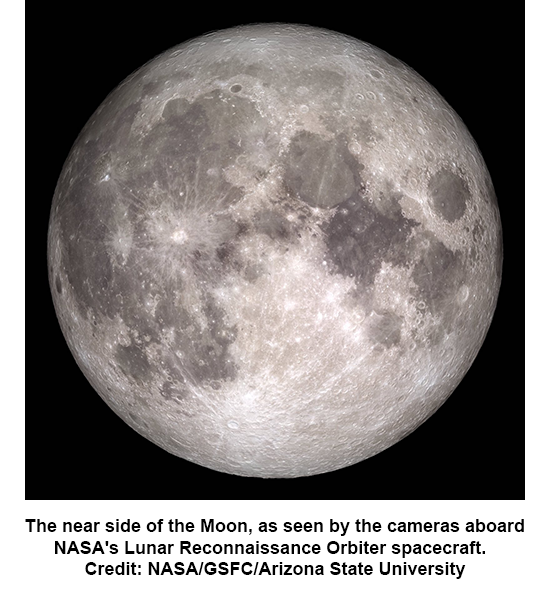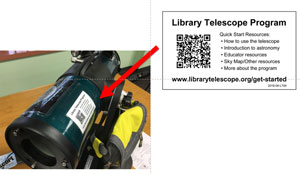Instructions on how to operate and use the "No Battery Finder" (NBF) which is a replacement to the "Red Dot Finder" found on many library telescopes.
Instructions on how to operate and use the "No Battery Finder" (NBF) which is a replacement to the "Red Dot Finder" found on many library telescopes.
The Library Telescope Program is pleased to support
International Observe the Moon Night (October 1, 2022)
#ObserveTheMoon
Download resource links: Download
Learn more at https://moon.nasa.gov

The Science Engagement Team at The Lunar and Planetary Institute is pleased to offer activities, multimedia, loanable materials, and more!
The Lunar and Planetary Institute was one of the original planetary science image repositories and its library collections extend back to the pre-Apollo era. The collection includes 1000s of physical prints of historical lunar imagery taken by the Lunar Orbiter missions. Lunar Orbiter I was the first U.S. spacecraft to orbit the Moon. Between 1966-1967, five Lunar Orbiter missions surveyed the Moon, providing the best images of the lunar surface available at the time. These missions were highly successful, photographing 99% of the Moon’s surface and enabling NASA scientists to select Apollo landing sites. Learn more about the Lunar Orbiter missions.
The LPI library is reducing its collection of Lunar Orbiter prints by making the prints available, at no cost, to educational institutions and members of the public. You can view the Lunar Orbiter prints here. Each print is 20” by 30” inches. Note: These are historical images. They do NOT represent current imaging capabilities. For modern Moon imagery, check out NASA’s Lunar Reconnaissance Orbiter (LRO).
Interested in requesting Lunar Orbiter prints for yourself or your institution? Please contact the Library Telescope Program with inquiries.
Help us spread the word about the resources available on our national library telescope program site.
If you are currently operating a library telescope program and your program information is not showing on this site, please Register Your Program with us.
If you are a program manager or library with a library telescope, we encourage you to apply a business card sized decal to your telescope. The decal will direct your library patrons to online videos and other resources to help them quickly get started using and enjoying the library telescope. You can download a PDF of the decals with instruction at the link: https://www.librarytelescope.org/images/resources/Apply_Get_Started_Decal_to_Telescope.pdf

Tell your friends about our FREE national website that is loaded with resources and videos to get started using the library telescope.
We are looking for volunteers to help us with our national program. Much of the work can be done on your own schedule and we will be mindful of asking too much. If you would like to learn more, please Contact us.
The Library Telescope Program fosters scientific literacy, stimulates interest in astronomy, and offers the awe and excitement of exploring the night sky to those who may have never looked through a telescope.